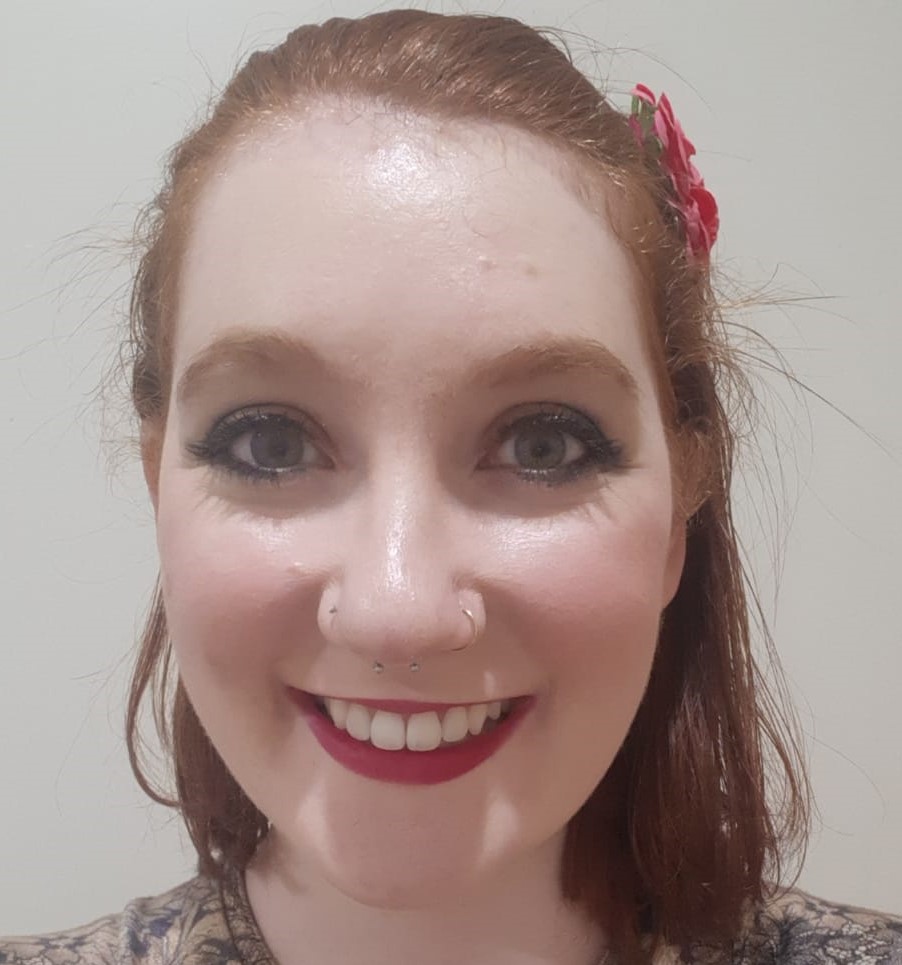Chef Charlotte Langley founded North American Craft Seafood Cannery, Scout. Inspired by the creative and sustainable seafood restaurants she previously worked in, Charlotte wanted to connect people all over Canada to delicious and unique seafood dishes.
Growing up in Prince Edward Island, she was surrounded by fisheries, culture, and community. Charlotte wanted to honour the independent and local fisheries that are also taking care of the waterways. “Scout came about in a big desire to champion the fisheries and communities that are sourcing and working ethically and responsibly.
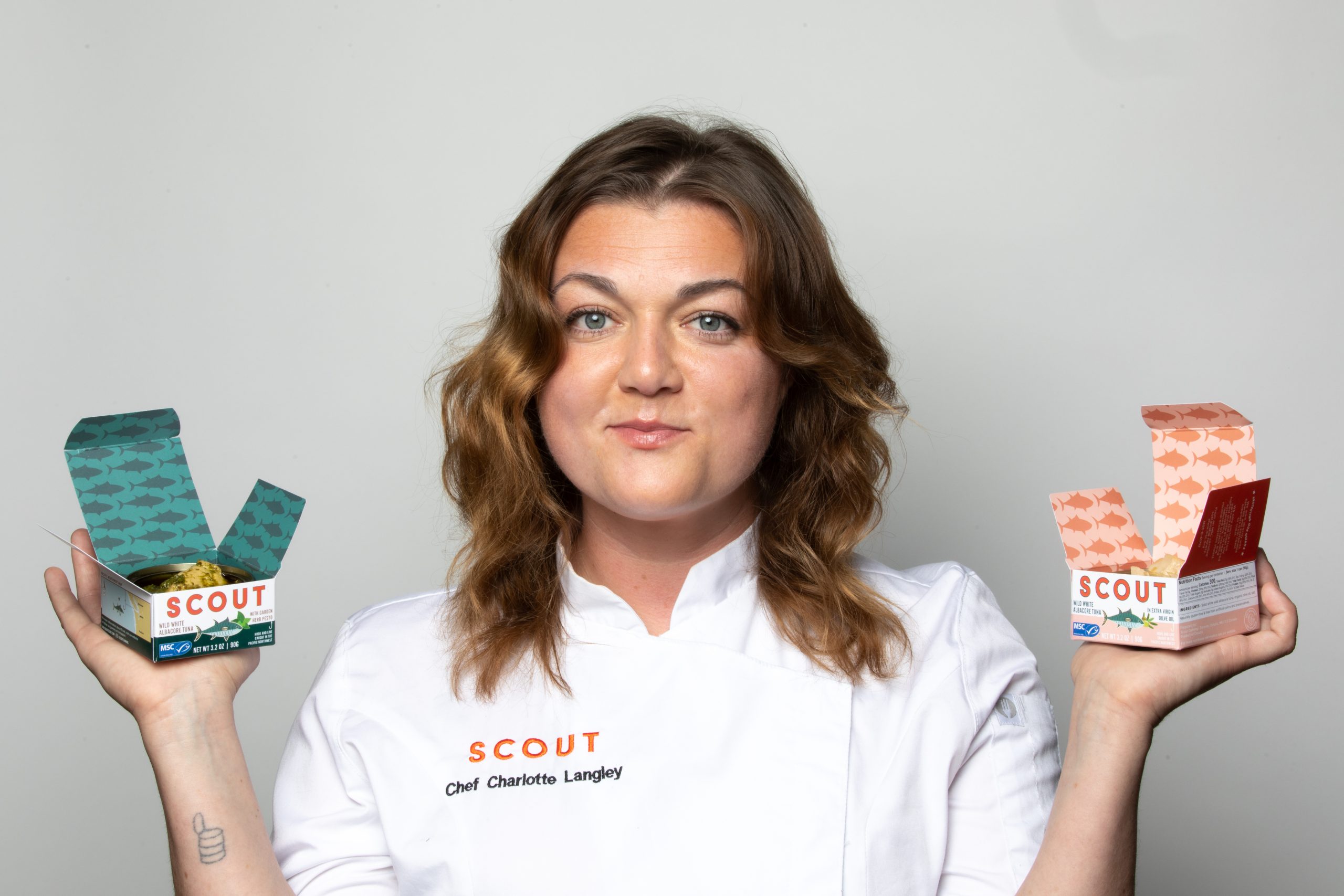
This is done by working with a few guidelines and leaders in the marketplace. Diving deep into fishery management”. Every can is crafted intentionally with Charlotte’s expertise and passion to show the home-chef how delicious seafood can be. “We also engage by looking at recipes driven by lesser-known species that are lower on the supply chain versus the top predators. I develop recipes in those categories”.
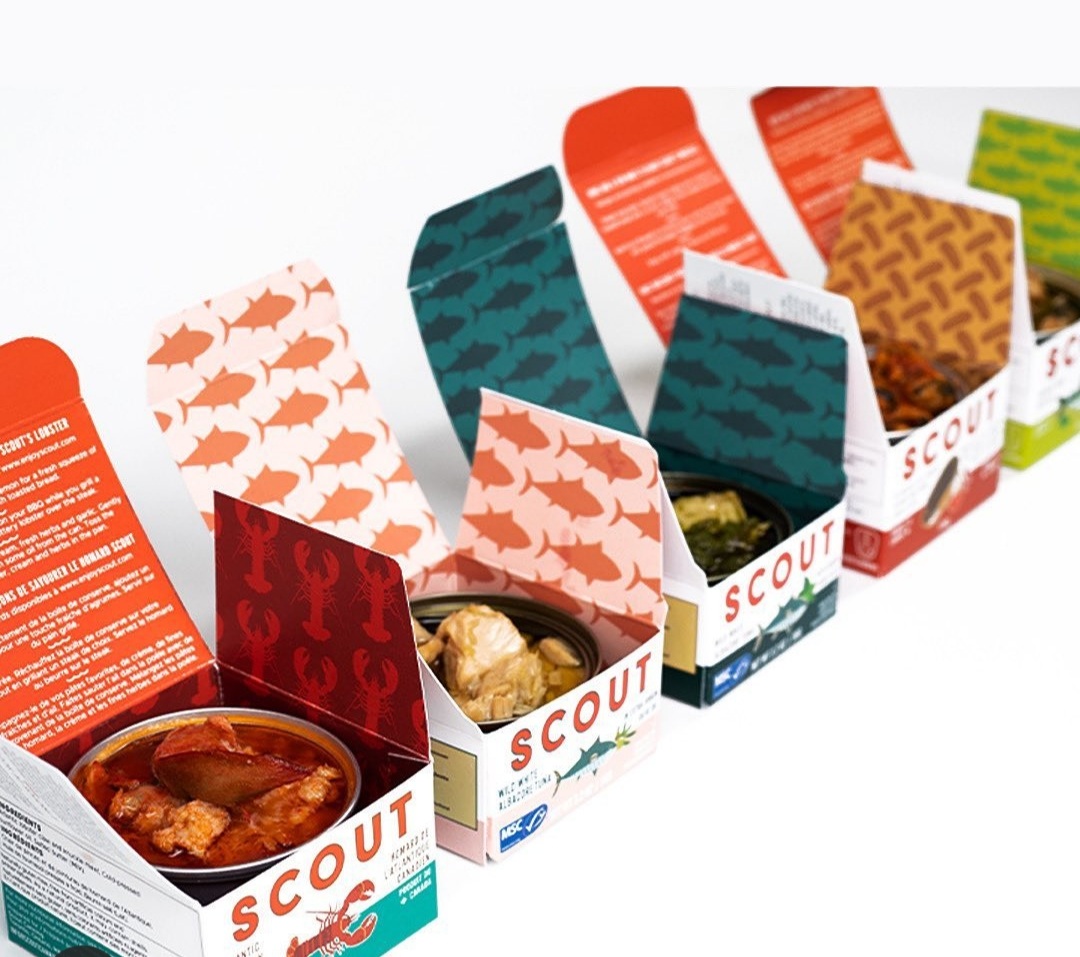
Charlotte refers to her specialization in seafood a “happy accident” when asked about her culinary background. After high school graduation, she realized that culinary arts spoke to her love for food and culture after spending time in Ottawa after high school graduation. “I was accepted at a culinary arts school in PEI, so I went back home. It was a two-year program, and in between the first and second year, I had to do a co-op to graduate”. It was through this placement that Charlotte fell in love with creative seafood.
“I had the opportunity to go to Vancouver and work in a place called C Restaurant. It was the very first fine-dining restaurant I ever worked in. It was also an ethically sourced and responsibly driven restaurant. I wasn’t looking to work with seafood specifically, but I fell into the job and loved the cuisine there. It was very ‘from the sea to you”.
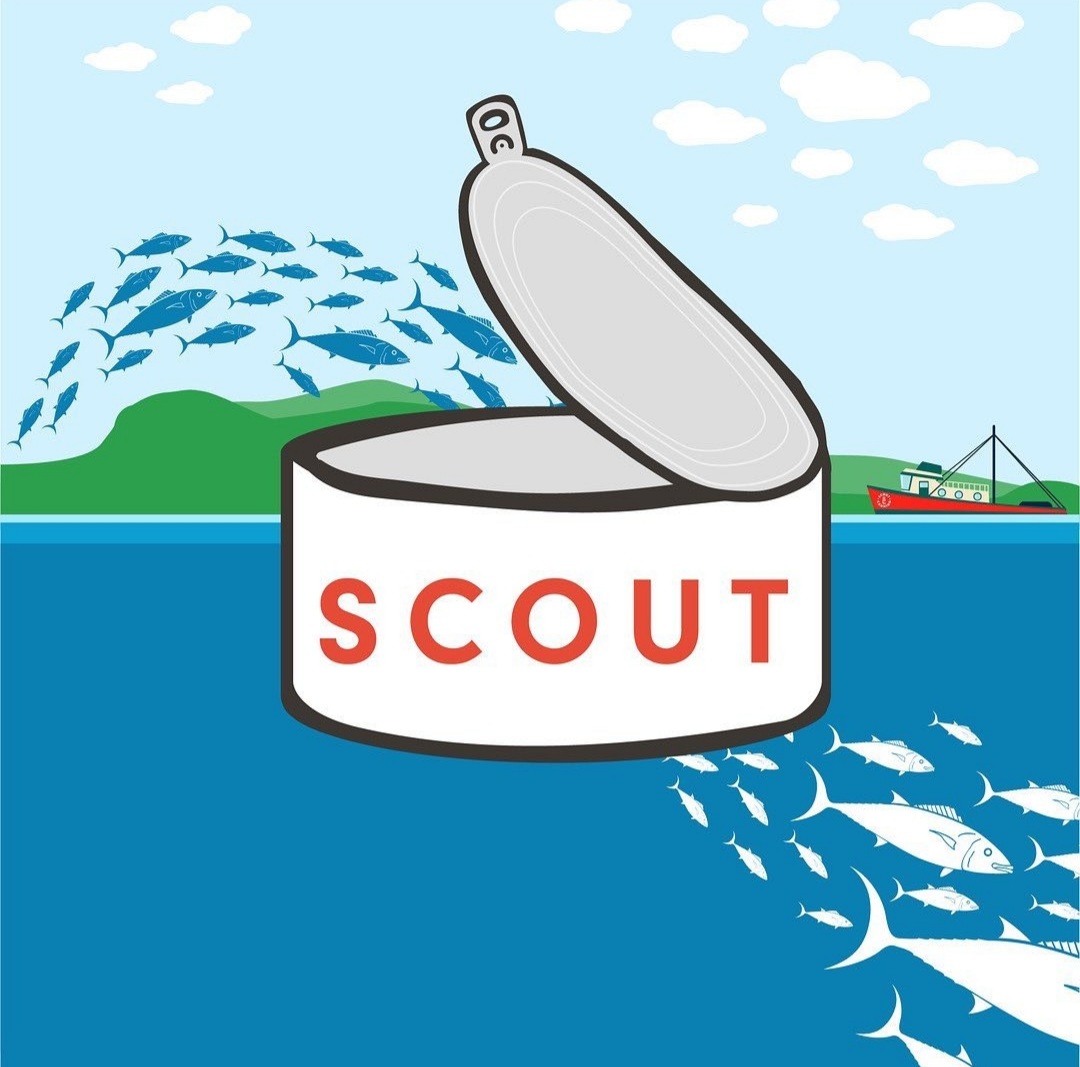
Charlotte and her team approached the creation of Scout with a sustainable mindset. This provided the company with an integral foundation to grow from. “I called it “responsible seafood,” since “sustainable” is used a lot and can come across as vague. That lead to the next step. I knew we could find sustainably sourced lobster or mussels, so I had to think about what would go well with those”.
The following steps in Scout’s development were vital in ensuring the preservation of the waterways and the environment. “When we started putting the steps in place to operate, we asked ourselves what our values were. We knew we did not want to use any plastic. Cans are 70% recyclable and can be recycled 7-10 times over”. Charlotte and her team got in touch with fisheries on the east and west coast. However, Scout was determined to distribute and produce their seafood to reduce the ecological footprint. “Tuna comes from BC. Therefore, we’ll want to produce our tuna in BC. Lobster comes from PEI; we should produce the lobster there. We went directly to the source to get our resources instead of shipping back and forth”.
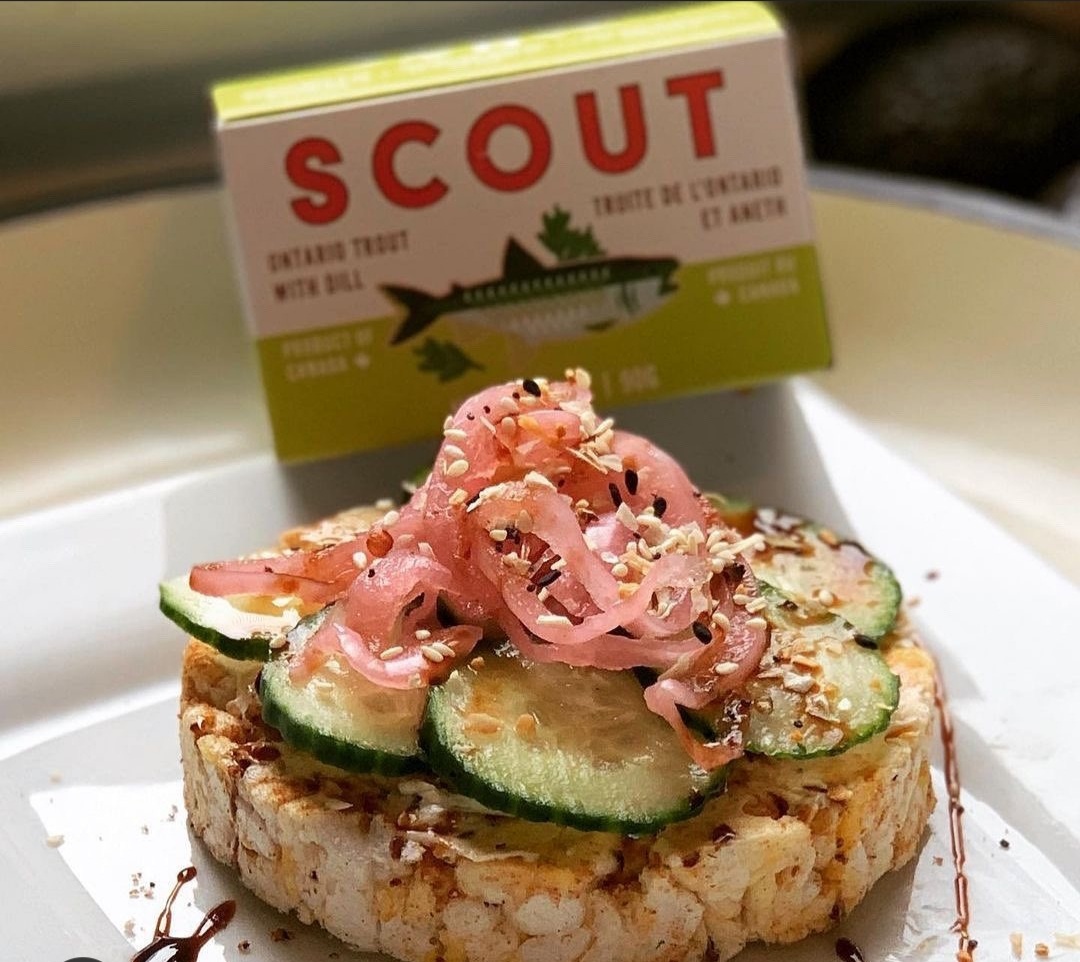
The seafood industry is notorious for vast amounts of food waste. The fish counters at grocery stores only display the best-looking species for the customers that choose to shop in that department. Charlotte explains this wasteful cycle. “The objective of the grocery store is to be bountiful and plentiful. All of the seafood species that are featured are harvested wild or farmed, and they are all choice-cuts of seafood. If fish does not get processed, it will go into the garbage”. Instead of following the status quo of seafood, Scout sees the opportunity in the fish that are not aesthetically pleasing but are equally as good to eat. “We work towards eliminating food waste by capturing those species on the back-end before they hit the grocery store. We capture the imperfect, “less-than-pretty” species that would otherwise go wasted.”
Through Scout’s unique seafood products, consumers are getting all the same benefits as their commercial counterparts. “Our products have a 3-year shelf-life, super delicious, packed with micronutrients, proteins, and omegas. It has everything you need for a daily diet while reducing the amount of waste. We don’t discriminate against any seafood species or size.”
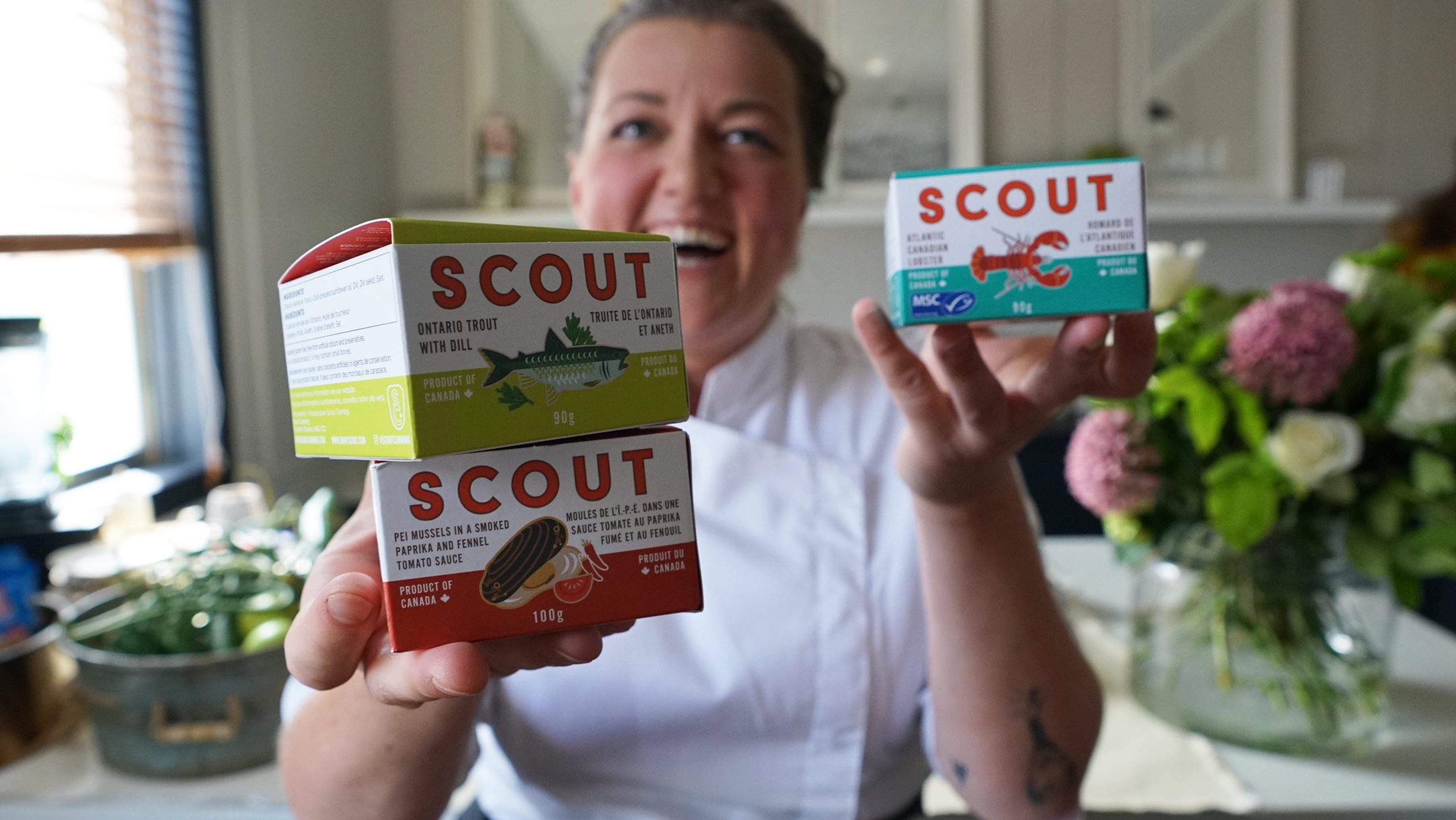
Charlotte is a passionate and creative chef who inspires connection and integrity with her unique dishes. “I want to translate my love for responsible seafood dishes to the world. I want to help people eat better at home and connect with the food they are eating. I want them to share it with their family and friends”. She is achieving all of this more; one ethically sourced can of seafood at a time. “By canning our food, people can pick it up at the grocery store and enjoy it whenever they like.
I want to create a comfortable, path-of-least-resistance cuisine that is delicious and convenient. Canning is the easiest way to achieve this”. Scout is making a difference in ocean health and changing people’s perception of the quality of food they can get from cans. “Canned foods in North America are not associated with being delicious, so my goal is to ensure Scout‘s canned seafood is ethically sourced, thoughtful, and making a positive impact on our oceans and waterways“.
For more information, kindly visit https://enjoyscout.ca/
